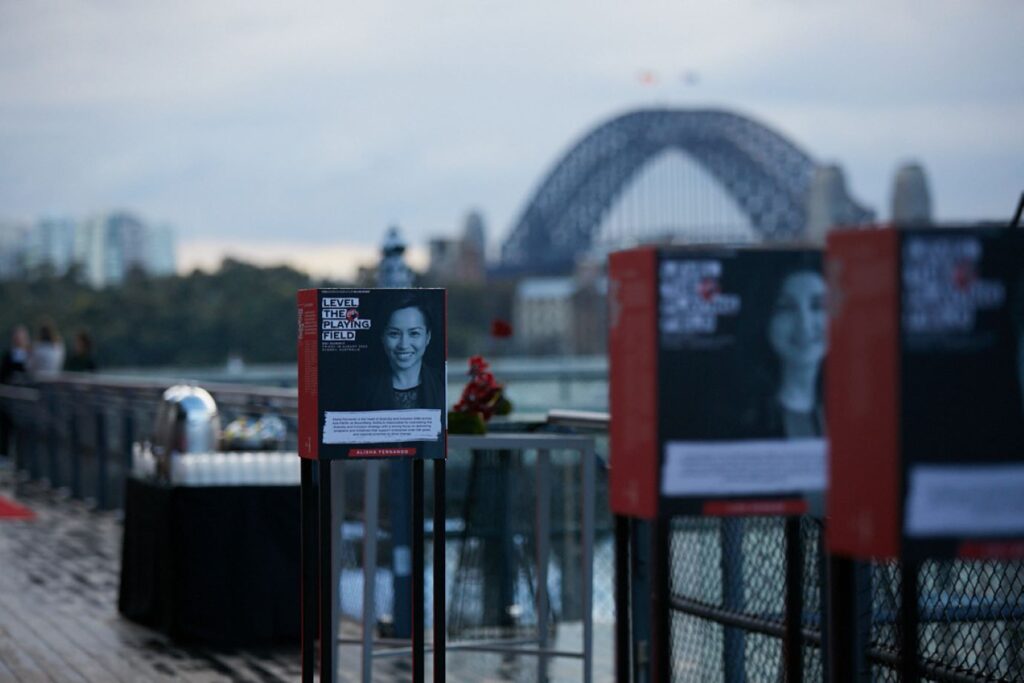Conversations surrounding diversity, equity and inclusion (DEI) have been gaining significant traction around the world. The world’s most prominent business leaders recognise that intention is key to creating opportunities for diversity, equity, and inclusion (DEI) can truly thrive.
Understanding an organisation’s ‘why’, is instrumental in establishing more effective DEI policies and practices, driving commitment and fostering a culture of accountability.
Global Chief Diversity, Equity, and Inclusion Officer at Coca-Cola, Tameka Harper, explained this approach during her recent address at Coca-Cola’s 2023 Diversity Equity & Inclusion Summit, Level the Playing Field, which took place during the 2023 FIFA Women’s World Cup™.
Understanding your organisation’s ‘why’
“It’s really about understanding your ‘why’. Why is inclusion even necessary? Why do we need to think about it in this way?” Harper told the summit, which was held in Sydney, in August.
Harper suggests that once organisations comprehend their ‘why,’ they should pledge commitment to DEI goals, establish what success would look like, and devise a plan to accomplish those targets.
Alisha Fernando, the Head of Diversity and Inclusion APAC, Bloomberg, said her organisation’s media arm had intentionally worked to diversify the talent it booked in speaking slots.
Fernando shared. “A lot of the speakers we were booking were male. We were told no one else had the experience to be able to speak.”
So we intentionally looked at the why, and then we asked why not?”
Fernando explained how Bloomberg took action and developed its own media training program called New Voices, and went out to other big organisations offering to train underrepresented people and voices. As a result of the program, Bloomberg is now booking more diverse and media trained speakers.
“Our intention was there, and we’ve now seen through our organisation more diverse speakers being booked and featured,” she said.
‘Welcomed, safe, valued and respected’
What about those people, especially leaders in organisations, who might be feeling uncomfortable with the changes that come along with bettering DEI practices?
Fernando has a simple fix, and it’s something she exercises every day in her role at Bloomberg: “I tell people four words – welcomed, safe, valued and respected.”
“I say if you strive to making sure every single person you come into contact with feels welcomed, safe, valued and respected, then you’re on your way,” she explained. “If you break it down and make it that simple, that’s where progress starts.”
“Sometimes DEI practitioners tend to make it a bit hard for everyone, but if you’re sitting there thinking I’m scared of doing something wrong…just remember those four words.”

‘It’s not a quota, it’s an understanding’
Director of the TechDiversity Foundation, Luli Adeyemo told the summit that it’s time organisations start getting to know their employees better. Understanding your people is key to authentic DEI practices, and building healthy, thriving organisations.”
“We spend billions of dollars to understand everything about the people we want to sell to…yet when it comes to our employees – who allegedly are our most important assets – what we truly know about them is the information we need to hire them. Beyond that, what do we really know about our workforce?” Adeyemo asked at the summit.
“When we talk about equity, and we talk about inclusion, we can’t truly build the programs… if we haven’t taken the time to know who our employees truly are,” Adeyemo shared.
“And we aren’t going to get that information unless they feel safe, and that they work for an authentic organisation.”
Adeyemo said there is ample opportunity in the tech industry to work towards understanding employees better.
“Let’s use tech for good. Let’s use the information for good. It’s an opportunity to understand our workforce and then do something about it. It’s not a quota, it’s an understanding.”
Vulnerability goes hand in hand with DEI
Co-Chair of the Women Leadership & Diversity Committee at Citi Singapore, Munir Nanji said he has learnt through experience how focusing on inclusion, and showing vulnerability to your team can be vital to inclusive leadership.
“Flip DEI around,” Nanji told the summit. “When you bring inclusion into an organisation, it becomes front and centre, the D and E will follow. There’s also a whole point around vulnerability.”
“When people realise we are all people, that we all have our own challenges, we all have our own goals and ambitions, and at the end, we all want to do good. Vulnerability is very important, especially in management.
“As you move through an organisation, your shell gets thicker and thicker. We end up building our own biases and we need to understand what they are, and be able to confront that.”
Women’s Agenda is sharing a number of key insights from the Diversity, Equity and Inclusion Summit held in line with the 2023 FIFA Women’s World Cup, thanks to our partnership with Coca-Cola. You can read our first piece in this series, exploring how Jessica Brown’s charity helps vulnerable women take charge or their lives. You can read Coca-Cola’s Level the Playing Field Report here.

